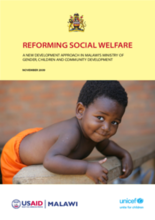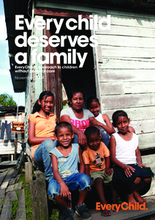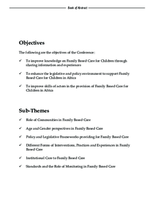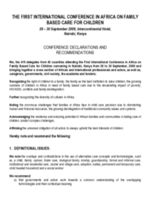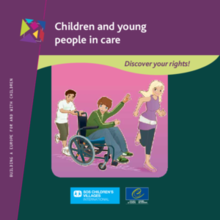Demographic Data
|
Sources: World Bank, UNDP, UNAIDS, DHS 2013 |
Displaying 13261 - 13270 of 14389
Despite its importance to the poorest in society, the social welfare sector in Malawi has not been performing well. Recognising this, the Principal Secretary (PS) in the Ministry of Gender, Children and Community Development (MoGCCD) requested support from United Nations Children’s Fund (UNICEF) and United States Agency for International Development (USAID), who have taken a new approach: supporting the Government of Malawi (GoM) to build a better social welfare system starting at the top, within the Ministry.
This document outlines EveryChild’s approach to the growing problem of children without parental care by defining key concepts, analysing the nature and extent of the problem, exploring factors which place children at risk of losing parental care, and examining the impact of a loss of parental care on children’s rights.
Programme of presentations and activities
Collection of abstracts from conference presentations
Summary of conference delegates' declarations and recommendations
This paper examines the efficacy of Independent Living (IL) services in the United States in preparing foster youth to live “independently”, and calls into question the appropriateness of an “independence” goal for youth aging out of foster care.
For this study, surveys were employed to explore the experiences of children in care and their carers about traditional fostering.
This paper describes CARE Rwanda’s Nkundabana model, which mobilizes adult volunteers from the community to provide guidance and care for children living in households without adult support, and discusses lessons learned.
This paper reports research on outcomes of long term foster care from an eight year longitudinal study of foster care placements in Australia.
Youth-friendly information booklet addressed to children and young people in alternative care.

